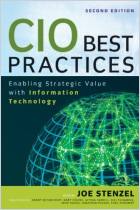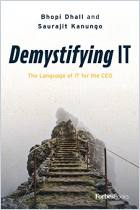Зарегистрируйтесь на getAbstract, чтобы получить доступ к этому краткому изложению.

Зарегистрируйтесь на getAbstract, чтобы получить доступ к этому краткому изложению.
Eric J. Brown and William A. Yarberry, Jr.
The Effective CIO
How to Achieve Outstanding Success through Strategic Alignment, Financial Management, and IT Governance
Auerbach Publications, 2008
Что внутри?
Today’s CIOs must add strategy, finance and governance skills to their technical chops.
Recommendation
Too often, technical virtuosi believe their skill entitles them to a seat in the executive suite. But both companies and chief information officers (CIOs) benefit when CIOs have finance and project-management chops in addition to technical knowledge. Information technology experts Eric J. Brown and William A. Yarberry Jr. explain why IT “governance” is necessary and why IT systems must match corporate strategy. Their discussion of the contribution of IT due diligence to the success of mergers and acquisitions is particularly valuable, since the failure to do such research dooms many M&As. They offer good advice on how to choose which functions to outsource, how to select vendors and what to look for in consultants. Whether you are a current or aspiring CIO, getAbstract suggests that you use this terrific handbook to learn how you can make a strong business contribution through technology. One note: Although Brown and Yarberry’s work is certainly accessible to a general business audience, their focus on IT with its accompanying jargon may make their guide somewhat tough going for those outside its target audience.
Summary
About the Authors
Eric J. Brown is CIO of NCI Building Systems, where he developed the strategy to connect the company’s IT architecture with its business objectives. William A. Yarberry Jr. is an IT consultant with more than 30 years of experience. He is also the author of two books and more than 20 articles on IT and management.

















Comment on this summary